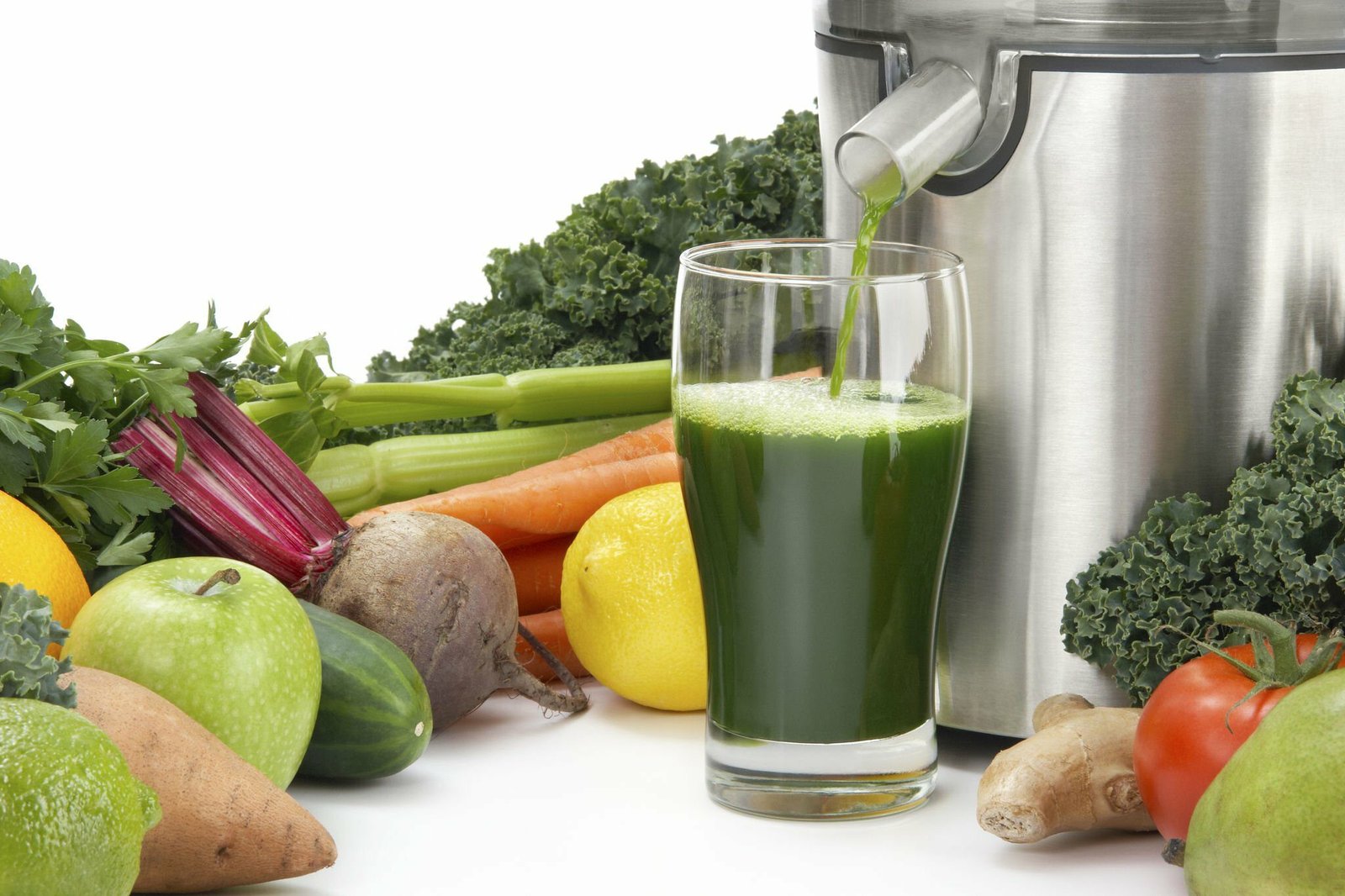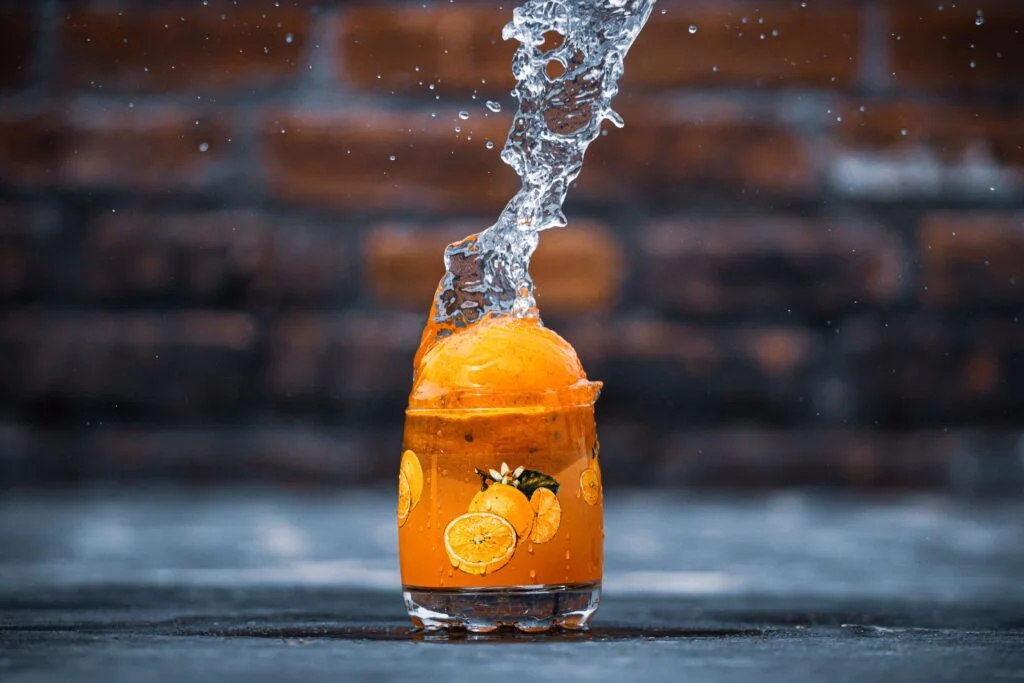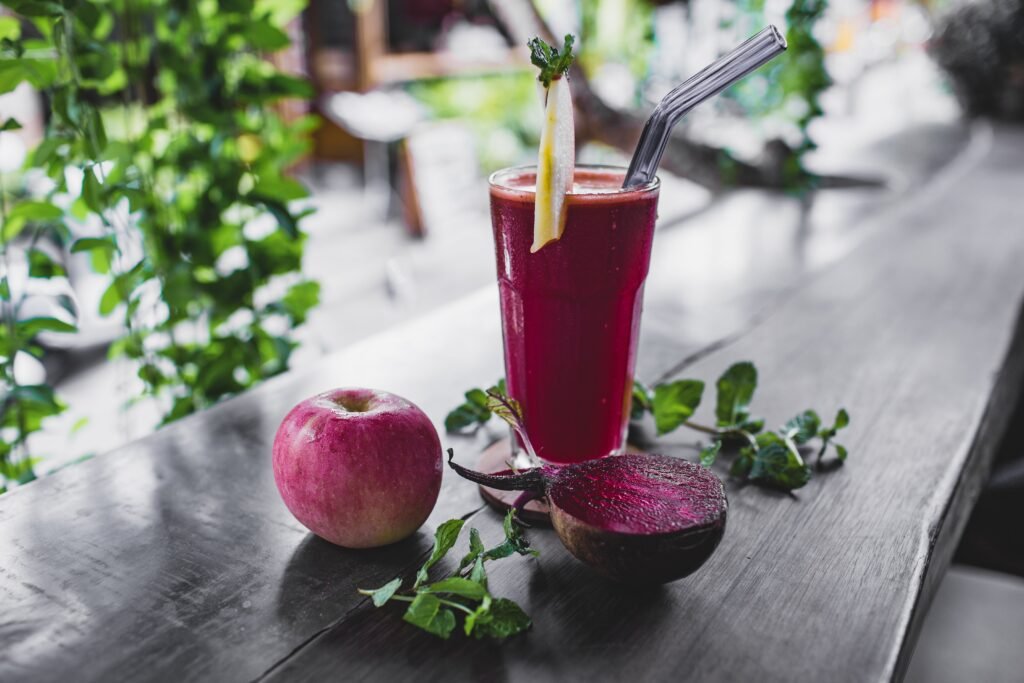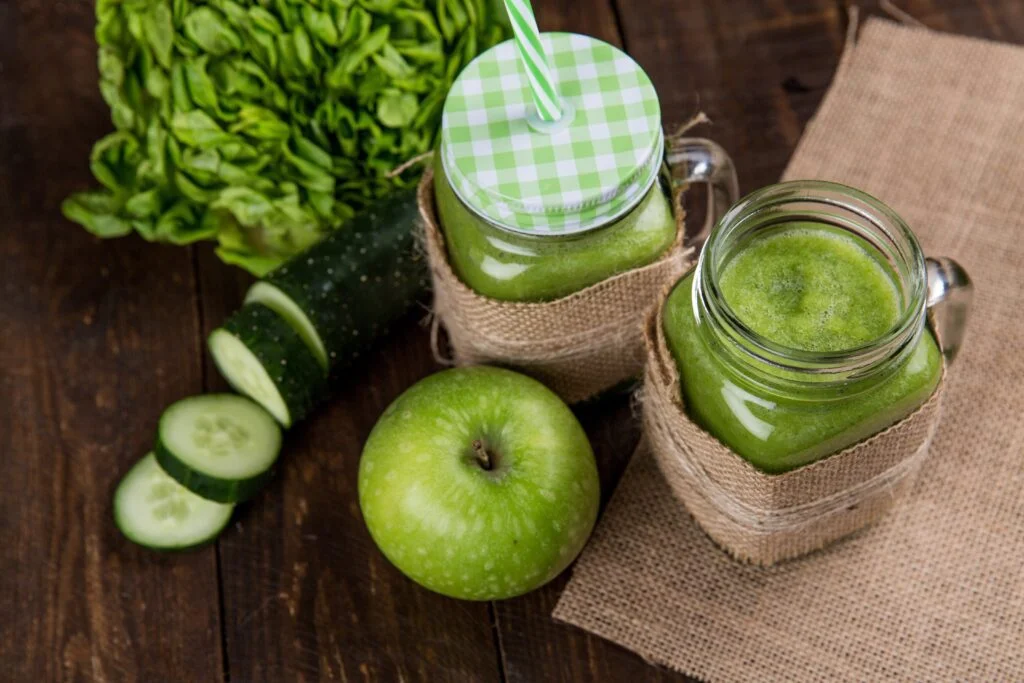Feeling sluggish and longing for a reboot? Detoxification practices like water and juice fasting have surged in popularity, promising cleansing magic.
But with two distinct approaches vying for your attention, the choice can be bewildering.
Water fasting strips away all but water, immersing you in a minimalist cleanse for days or weeks.
It kickstarts cellular repair and detoxification, while offering a stark, introspective experience.
Juice fasting steps in with a gentler touch.
Low-sugar fruit and vegetable juices provide essential nutrients while mimicking some aspects of calorie restriction and potentially supporting gentle detoxification.
Though sharing the allure of purification, these methods diverge significantly.
Understanding their key differences, including strengths, weaknesses, and health impacts, is crucial for choosing the path that aligns perfectly with your goals and well-being.
Hopefully this blog post will act as your unbiased guide.
We’ll dissect the pros and cons of each method, translate the science into actionable insights, and equip you with the practical knowledge to navigate your chosen journey with confidence.
Ready to unravel the mysteries of water and juice fasting? Let’s embark on this exploration together!

Water Fasting: Balancing Benefits and Drawbacks
Water fasting dives deep into minimalism, consuming nothing but water for a set period. While intense, it boasts several potential benefits:
- Cellular renewal: Increased autophagy, a cellular housekeeping process, may remove damaged proteins and boost overall rejuvenation.
- Weight loss: Calorie restriction often leads to rapid weight loss, though sustainability can be a challenge.
- Insulin sensitivity: Improved insulin sensitivity enhances blood sugar control, potentially benefiting those with diabetes or prediabetes.
- Inflammation reduction: Reduced inflammation throughout the body can contribute to improved overall health and well-being.
- Cognitive boost: Some studies suggest potential short-term improvements in cognitive function, like memory and focus.
- Dietary simplicity: Water fasting eliminates all food decisions, offering a temporary break from meal planning and preparation.
However, these benefits come with potential drawbacks:
- Muscle loss: Muscle breakdown becomes a risk during extended fasting, particularly without proper support.
- Adherence challenges: The restrictive nature of water fasting can be difficult for some to maintain, leading to early termination.
- Fatigue and headaches: Fatigue and headaches are common side effects, especially during the initial adjustment period.
- Nutritional deficiencies: While short-term water fasting may not lead to significant deficiencies, extended periods can pose risks.
- Refeeding challenges: Resuming solid food after fasting requires careful planning and gradual reintroduction to avoid adverse effects.
- Unsuitable for certain individuals: Pregnant women, people with specific medical conditions, and those who are underweight should not attempt water fasting due to potential risks.
Overall, water fasting offers potent benefits for some, but the potential drawbacks and individual suitability must be carefully considered.
In the next section, we’ll explore the pros and cons of juice fasting for a comparison.

Juice Fasting: A Gentler Detox Approach with Caveats
While water fasting embraces stark minimalism, juice fasting opts for a gentler yet still restrictive approach.
It allows low-sugar fruit and vegetable juices, offering:
- Higher nutrient intake: Compared to water fasting, juices provide vitamins, minerals, and electrolytes, potentially reducing deficiency risks.
- Easier adherence: The presence of flavor and nutrients can make juice fasting more palatable and sustainable for some.
- Energy boost: The initial influx of carbohydrates from juices can provide a temporary energy surge.
- Potential detoxification: While the science is inconclusive, some proponents believe juices can support detoxification processes.
- Digestive improvement: Certain juices, rich in fiber and enzymes, may potentially aid digestion.
However, even with these advantages, juice fasting comes with its own set of drawbacks:
- Calorie deficit and muscle loss: Juice fasting still restricts calories, potentially leading to muscle loss if not managed properly.
- Blood sugar spikes: High-sugar juices can cause blood sugar fluctuations, especially in individuals sensitive to carbohydrates.
- Digestive issues: Depending on individual tolerance, certain juices can trigger bloating, gas, or diarrhea.
- Incomplete nutrient profile: Juices lack essential nutrients like protein and fiber, necessitating careful refeeding and potentially supplementation.
- Food cravings: The absence of solid food may trigger cravings for more substantial meals, hindering adherence.
- Reduced autophagy: Compared to water fasting, juice fasting likely offers less potential for cellular autophagy.
In essence, juice fasting offers a more accessible entry point for some, but its benefits come with trade-offs and require careful management to avoid potential downsides.
We’ll look deeper into the specific comparisons between water and juice fasting in the next section, helping you navigate the detox terrain with clarity.

Specific Comparisons: Unveiling the Differences Between Water and Juice Fasting
With the pros and cons of each method on the table, let’s dive deeper into specific comparisons to shed light on their distinct qualities:
1. Weight Loss:
- Water Fasting: Can lead to rapid weight loss due to severe calorie restriction, but muscle loss is a potential concern. Sustainability can be challenging due to refeeding difficulties.
- Juice Fasting: Offers slower weight loss due to higher calorie intake compared to water. Muscle loss is also a possibility, but to a lesser extent. Sustainability may be higher due to the presence of nutrients and easier reintegration into solid food.
2. Health Benefits:
- Heart Disease: Both water and juice fasting have shown some preliminary associations with improved blood pressure and cholesterol levels, potentially benefiting heart health. However, more research is needed.
- Diabetes: Water fasting may improve insulin sensitivity in some individuals with type 2 diabetes, but potential for blood sugar fluctuations makes juice fasting less suitable.
- Inflammation: Both methods have shown potential anti-inflammatory effects, but water fasting appears to be more effective due to its deeper metabolic impact.
3. Safety and Side Effects:
- Water Fasting: Not suitable for pregnant, underweight, or individuals with certain medical conditions. Potential side effects include fatigue, headaches, muscle loss, electrolyte imbalances, and refeeding difficulties. Medical supervision is recommended.
- Juice Fasting: Generally considered safer than water fasting due to nutrient intake, but can still cause digestive issues, blood sugar spikes, and nutrient deficiencies with prolonged use. Consulting a healthcare professional is advisable.
4. Digestive Impact:
- Water Fasting: May initially disrupt digestion due to lack of fiber and digestive enzymes. Resuming solid food needs careful planning to avoid digestive upset.
- Juice Fasting: Can improve digestion for some due to fiber and enzymes in certain juices, but high sugar content in others can cause bloating and diarrhea. Individual tolerance varies.
5. Energy Levels:
- Water Fasting: Initial fatigue is common due to metabolic shift, but some experience increased energy after adaptation. Energy levels can remain stable during short fasts.
- Juice Fasting: Initial surge in energy from sugar, followed by potential dips due to calorie restriction. Sustaining energy levels long-term requires careful juice selection and nutrient monitoring.
6. Psychological Effects:
- Water Fasting: Can trigger hunger pangs, cravings, and mood swings due to food deprivation. Can also lead to feelings of clarity and introspection for some.
- Juice Fasting: Psychologically easier for some due to presence of taste and nutrients. However, cravings for solid food and potential blood sugar fluctuations can impact mood.
Remember, the optimal approach for you depends on your individual needs, health conditions, and goals.
Always consult a healthcare professional before embarking on any fasting program to ensure its safety and suitability.
In the next section, we’ll explore practical tips for navigating your chosen fasting journey, whether it be water or juice.

Special Considerations: Delving Deeper into Fasting Alternatives
While water and juice fasting offer distinct pathways to detox, several specialized versions warrant exploration. Let’s navigate these unique routes:
1. Water vs. Snake Juice Fasting:
Snake juice, a water-based electrolyte drink, adds a twist to water fasting. Its benefits include:
- Potentially better electrolyte balance: Sodium, potassium, and magnesium in snake juice can counter electrolyte imbalances sometimes experienced during water fasting.
- Reduced hunger pangs: Electrolytes may help mitigate hunger and cravings by stabilizing hormones and supporting nerve function.
- Simplified approach: No need to prepare elaborate juices, just mix snake juice powder with water.
However, some potential drawbacks exist:
- Palatability issues: The salty taste of snake juice can be disagreeable for some, leading to difficulty adhering to the fast.
- Nutrient deficiencies: While electrolytes support essential functions, snake juice lacks vitamins, minerals, and protein, requiring careful refeeding and potentially supplementation.
- Unsuitable for specific individuals: Those with kidney disease or on certain medications should avoid snake juice due to potential electrolyte complications.
2. Carrot Juice Fasting vs. Water Fasting:
Carrot juice fasting touts numerous benefits:
- Rich in nutrients: Carrots offer beta-carotene, vitamins A, K, and C, and several minerals, potentially mitigating nutrient deficiencies in fasting.
- Natural sweetness: Can satisfy sugar cravings and make fasting more palatable for some.
- Digestive support: Fiber in carrots can aid digestion, though digestive issues can still occur depending on individual tolerance.
However, caveats also exist:
- High sugar content: High sugar levels in carrot juice can cause blood sugar spikes and hinder ketosis, potentially negating fasting benefits.
- Limited nutrient profile: While offering some vital nutrients, carrot juice lacks protein, essential fats, and other micronutrients, necessitating careful refeeding and supplementation.
- Not a true water fast: The calorie and sugar content in carrot juice differentiate it from a pure water fast and may impact desired physiological effects.
3. Gabriel Cousens Juice Fasting vs. Water Fasting:
Developed by Dr. Gabriel Cousens, this protocol emphasizes fresh vegetable and fruit juices with specific ratios and timings. Its strengths include:
- Gradual detox: The phased approach with various juices may ease into fasting for some, potentially minimizing side effects.
- Nutrient diversity: A wider range of juices offers more varied nutrients compared to single-ingredient juice fasts.
- Holistic approach: Dr. Cousens’ program incorporates yoga, meditation, and colon cleansing, aiming for a comprehensive detox experience.
However, some considerations remain:
- Complexity: Planning and preparing various juices according to the protocol can be demanding.
- Sugar content: Depending on the chosen juices, potential for blood sugar fluctuations and interference with ketosis exists.
- Limited research: While Dr. Cousens advocates for specific health benefits, scientific evidence supporting the protocol’s efficacy is limited.
4. Dry Fasting:
An advanced practice involving abstaining from both food and water, dry fasting requires extreme caution and medical supervision. Potential benefits include:
- Enhanced cellular repair: Some theories suggest deeper autophagy and detoxification compared to water fasting.
- Rapid weight loss: Due to complete calorie restriction, weight loss can be swift, but muscle loss is a significant concern.
- Spiritual benefits: Some practitioners report profound introspective experiences during dry fasting.
However, the risks are formidable:
- Dehydration: Dehydration can lead to severe and potentially life-threatening complications.
- Electrolyte imbalances: Lack of water can disrupt electrolyte balance, causing muscle cramps, organ dysfunction, and even death.
- Unsuitable for most individuals: Due to the extreme risks, dry fasting should only be considered under strict medical supervision and is not recommended for most individuals.
Remember, exploring these special considerations requires careful research, individual health assessment, and professional guidance, if applicable.
In the next section, we’ll equip you with practical tips for making your chosen fasting journey a safe and successful one.

Practical Tips
Now that you’ve explored the intricacies of water and juice fasting, let’s look at some practical guidance to empower your journey:
Choosing the Right Method:
- Goals: Identify your primary goal (weight loss, detoxification, health improvement). Water fasting offers quicker weight loss and potential autophagy benefits, while juice fasting may be easier to adhere to and provide nutrients.
- Health: If you have any medical conditions, consult your doctor before considering any fasting method. Certain conditions, like pregnancy or diabetes, may preclude fasting altogether.
- Lifestyle: Consider your daily routine and preferences. Can you commit to the restrictions of water fasting, or would juice fasting’s flexibility be more sustainable?
Preparation and Planning:
- Research: Choose reliable sources to understand the chosen method’s specifics, potential risks, and refeeding guidelines.
- Clear your schedule: Minimize stress and plan for adequate rest during your fast.
- Stock your pantry: Have healthy refeeding options like broth, fruits, and vegetables readily available.
Diet During and After Fasting:
- Water & Electrolytes: Stay hydrated with water and consider electrolyte supplements, especially during longer fasts.
- Juice Fasting: Choose low-sugar fruit and vegetable juices to avoid blood sugar spikes. Stick to the recommended quantities and timings in your chosen protocol.
- Refeeding: Start with easily digestible foods like soups and purees, gradually progress to solid foods over several days. Listen to your body’s hunger cues and prioritize nutrient-dense options.
Managing Side Effects:
- Headaches: Rest, hydration, and gentle stretching can often ease headaches. Consult your doctor if they persist or become severe.
- Fatigue: Listen to your body and rest when needed. Short walks or gentle yoga can aid energy levels without stressing your body.
- Hunger Pangs: Distract yourself with activities, stay hydrated, and remember the temporary nature of these sensations.
Medical Supervision:
- Seek guidance: Always consult a healthcare professional before embarking on any fasting program, especially if you have any health concerns. They can assess your suitability, monitor progress, and offer personalized advice.
- Listen to your body: Pay close attention to your body’s signals during the fast. Stop immediately and seek medical help if you experience any concerning symptoms like dizziness, severe pain, or confusion.
Remember, success lies in choosing the method that resonates with your body and lifestyle, preparing diligently, and prioritizing your well-being throughout the process.
By listening to your body, respecting its limits, and seeking professional guidance, you can confidently navigate your detox journey and unlock its potential benefits.

Conclusion: Unveiling the Detox Path That’s Right for You
As our exploration of water and juice fasting draws to a close, leaving you equipped with invaluable insights to pave your personalized detox path.
Here are the key takeaways:
- Both water and juice fasting offer potential health benefits, including weight loss, improved insulin sensitivity, and reduced inflammation. However, each comes with its own limitations and potential drawbacks.
- Water fasting offers a powerful kickstart for cellular repair and rapid weight loss, but requires dedication and carries risks of muscle loss, fatigue, and electrolyte imbalances.
- Juice fasting provides a gentler approach, potentially easing adherence and offering some essential nutrients, but may compromise ketosis and still necessitate careful calorie management to avoid side effects.
- The perfect detox choice lies within you. Consider your goals, health conditions, and lifestyle to select the method that resonates most with your individual needs and well-being.
- Preparation, planning, and listening to your body are crucial throughout your journey. Consult a healthcare professional for personalized guidance and prioritize safe refeeding after your fast.
Remember, informed decisions are the pillars of a successful detox journey. We encourage you to delve deeper into the resources provided within this article and beyond, ensuring you approach your chosen path with both knowledge and confidence.

For further exploration:
- Websites:
- National Institutes of Health: https://www.ncbi.nlm.nih.gov/pmc/articles/PMC8151159/
- National Center for Complementary and Integrative Health: https://www.nccih.nih.gov/
- Books:
- “The Complete Guide to Fasting” by Jimmy Moore and Jason Fung
- “Eat Stop Eat” by Brad Pilon
This concludes our comprehensive guide to navigating water and juice fasting.
We hope it equips you with the knowledge and practical tools to approach your chosen path with informed clarity and confidence.
Remember, knowledge is power, and with this guide by your side, you’re empowered to make informed decisions and embark on a transformative journey towards a healthier, more vibrant you.
Embrace the empowering knowledge you’ve gained, and step onto your unique detoxification path with purpose.
The journey towards a healthier and more vibrant you starts with an informed and mindful first step.
